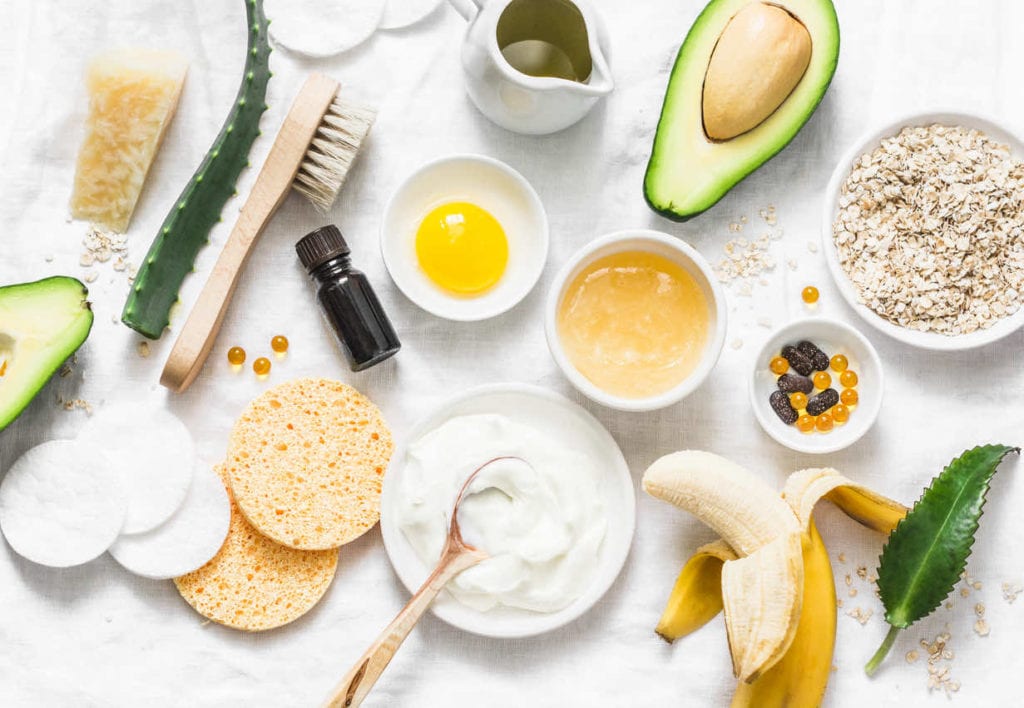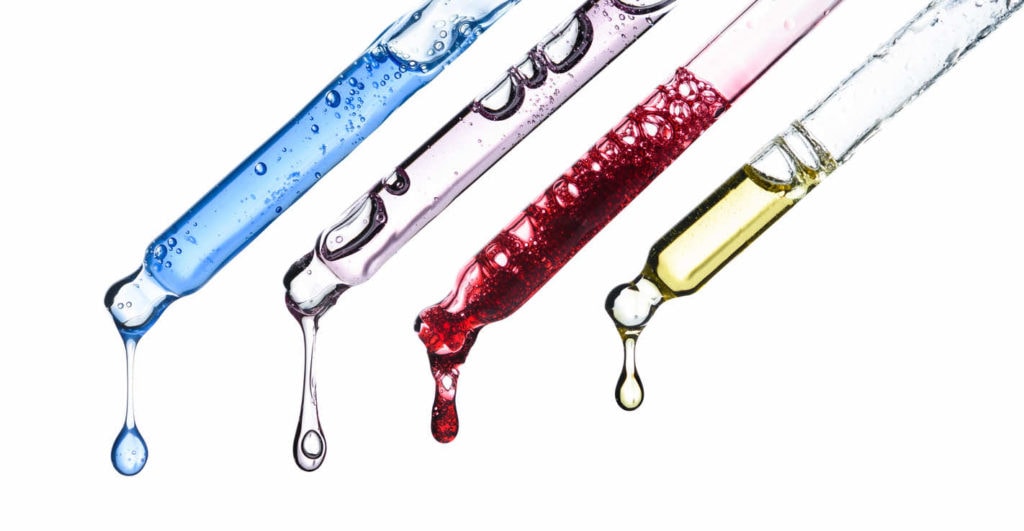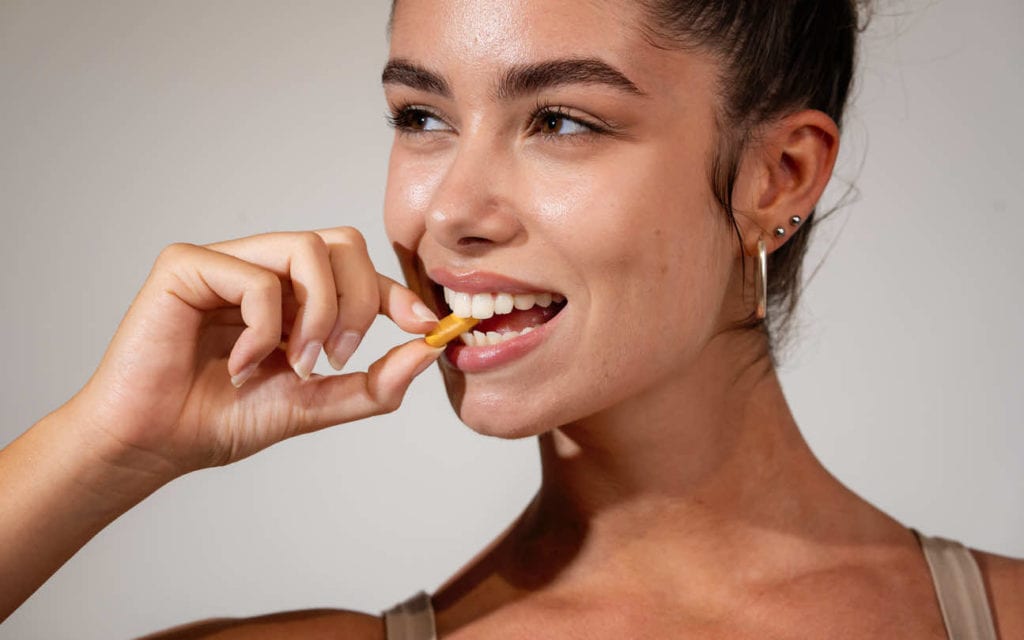Having good skin is essential. Smooth, clear, and glowing skin is considered a sign of youth, health, and beauty, which are highly valued traits. In addition to aesthetic reasons, good skin is also vital for overall health and well-being.
The skin is the largest organ in the body and serves as a barrier against external pollutants, toxins, and harmful UV rays. It also helps regulate body temperature and plays a vital role in immune function.
Achieving healthy skin involves various factors, including adopting a healthy lifestyle, following an appropriate skincare routine, and guarding against sun exposure. Additionally, a diet abundant in vitamins, antioxidants, macronutrients, and micronutrients for skin plays a critical role in maintaining skin health.
Micronutrients are essential vitamins and minerals required in small quantities to maintain healthy skin. These micronutrients play a crucial role in maintaining the structure and function of the skin by:
– Supporting cell growth and repair
– Regulating oil production
– Reducing inflammation
– Protecting the skin from damage caused by UV radiation and other environmental factors
When your skin is deficient in micronutrients, the skin may become dry, rough, and prone to wrinkles, acne, and other skin conditions.
It’s vital to consume a balanced diet rich in micronutrients for skin. This diet should include different fruits, vegetables, whole grains, lean proteins, and healthy fats to ensure the skin gets the micronutrients it needs to stay healthy and vibrant.

What Are the 15 Most Essential Vitamins and Micronutrients for Healthy Skin?
Skin Health Solutions
Your skin needs micronutrients to stay healthy and function properly. When your skin lacks micronutrients, it may become dry, rough, and prone to wrinkles, acne, and other skin conditions. Here are the 15 most important micronutrients and vitamins for skin health:
1. Vitamin A
It plays a vital role in skin cell growth and repair, which helps keep the skin looking youthful and healthy. Vitamin A helps to regulate sebum production, the oily substance leading to acne when produced in excess.
It also has anti-inflammatory properties and promotes collagen production, which can help to reduce the appearance of fine lines and wrinkles.
2. Vitamin C
This vitamin is a powerful antioxidant that helps protect the skin from free radical damage caused by environmental factors such as pollution and UV radiation. The exposure can lead to premature ageing and skin damage.
Vitamin C is also essential for collagen production, which is vital for skin elasticity and firmness. In addition, it helps to brighten skin complexion, reduce the appearance of dark spots, and improve skin texture.
3. Vitamin E
One of the best-known micronutrients for skin, vitamin E is a powerful antioxidant. It helps protect the skin from damage caused by environmental factors, such as extreme weather conditions and lifestyle stressors like stress or lack of sleep.
In addition, vitamin E helps hydrate and moisturise the skin — thereby reducing the appearance of fine lines and wrinkles. It also supports the skin’s natural healing process and may help reduce inflammation and redness.
4. Vitamin D
It helps regulate cell growth and differentiation, which is vital for maintaining the skin’s barrier function and promoting wound healing. Vitamin D also supports the skin’s immune system, protecting against infection and inflammation.
Additionally, vitamin D helps regulate the production of sebum, the skin’s natural oil, which can help reduce the appearance of acne. Adequate vitamin D levels may reduce the risk of certain skin conditions such as psoriasis and eczema.
5. Vitamin K
This vitamin plays a crucial role in the process of blood clotting. In addition, it helps reduce the appearance of dark circles and bruising by strengthening the walls of blood vessels and capillaries. Strengthened blood vessel walls help prevent blood leakage, which can cause discolouration and bruising under the eyes. Vitamin K has anti-inflammatory properties, which can help reduce skin redness and irritation.

6. Biotin
Also known as vitamin B7, biotin is crucial in promoting the growth and maintenance of skin, hair, and nail tissues by supporting keratin production. This protein is a major component of hair, skin, and nails.
Biotin, is often included in topical skincare products and hair care supplements. When applied topically, biotin may help improve skin hydration and increase the production of ceramides — lipids that help maintain the skin barrier. It also helps reduce inflammation and improve the appearance of fine lines and wrinkles.
In addition to topical application, you can take biotin orally as a supplement or through dietary sources such as eggs, nuts, and leafy green vegetables.
7. Niacin
Also known as vitamin B3, niacin is a water-soluble vitamin that improves skin barrier function. It helps strengthen the skin barrier by promoting the production of ceramides, essential lipids that help keep the skin hydrated and protected.
Niacin also brightens the skin, as it can reduce the appearance of hyperpigmentation, skin tags, and age spots. It does this by inhibiting the transfer of pigment to skin cells, which helps to even out skin tone and improve overall radiance.
It also helps reduce inflammation and redness in the skin by blocking the production of inflammatory mediators and promoting the release of anti-inflammatory compounds.
8. Pantothenic acid
Also known as vitamin B5, pantothenic acid is a component of coenzyme A, which produces the skin’s natural oil, sebum. Pantothenic acid can help keep the skin moisturised and prevent dryness and flakiness by supporting sebum production.
It also has anti-inflammatory properties that can help reduce redness and skin irritation. This property makes it a useful ingredient in skincare products for people with sensitive or acne-prone skin.
9. Zinc
Zinc is involved in many cellular processes, including protein synthesis and cell division, which are crucial for skin repair and growth. It also has anti-inflammatory and antioxidant properties, which can help to reduce skin inflammation and damage caused by free radicals.
Zinc deficiency can lead to various skin problems, such as acne, eczema, and psoriasis. Therefore, ensuring an adequate zinc intake through diet or supplements is essential for maintaining healthy skin.

10. Copper
Copper is a critical component of collagen, a protein that gives skin its strength and elasticity. Copper has antioxidant properties that can help to protect skin cells from damage caused by free radicals.
It stimulates the production of elastin, another protein that keeps skin firm and supple. Copper deficiency can lead to dry, dull, and sagging skin. So, including copper-rich foods in your diet, such as shellfish, nuts, and seeds, can help to promote healthy and beautiful skin.
11. Selenium
Selenium is an antioxidant, protecting skin cells from damage caused by free radicals and inflammation. Selenium also helps boost the immune system, which is essential for fighting off infections that can harm the skin.
Adequate selenium intake may help to prevent acne, wrinkles, and skin cancer, and promote overall skin health. Good dietary sources of selenium include Brazil nuts, seafood, poultry, and whole grains.
12. Iron
Iron helps improve skin strength and elasticity through the production of collagen. Iron also plays a role in oxygenating skin cells, promoting healthy blood flow, and preventing anaemia, which can lead to pale and dull-looking skin.
You can get iron through a balanced diet that includes red meat, poultry, seafood, beans, and leafy green vegetables to maintain healthy skin.
13. Magnesium
Magnesium helps produce collagen and regulate the skin’s oil production, reducing the likelihood of acne breakouts.
It has been shown to have anti-inflammatory properties, making it helpful in treating skin conditions such as eczema and psoriasis. Additionally, magnesium can help protect the skin from sun damage, leading to premature ageing and skin cancer.
14. Manganese
Manganese has antioxidant properties that protect your skin from damage caused by free radicals. It also aids in wound healing, protects from UV radiation, and has anti-inflammatory properties that may help reduce acne.
However, excessive manganese intake can be harmful, so it’s important to get it from a balanced diet rather than supplements.
15. Omega-3 fatty acids
Omega-3 fatty acids can help reduce inflammation, prevent premature ageing, and improve skin hydration and texture. Omega-3s can also help protect the skin from damage caused by UV radiation and environmental stressors like harsh weather conditions.
Eating a diet rich in omega-3s, such as fatty fish, chia seeds, and flaxseeds, or taking supplements can help to support healthy, radiant skin.
Micronutrients are essential nutrients our body needs in small amounts to function correctly, including supporting healthy skin. Here are some tips to help protect your skin with micronutrients:
Eat a well-balanced diet: A balanced diet that includes a variety of fruits, vegetables, whole grains, lean protein, and healthy fats can provide your body with the necessary micronutrients. To support healthy skin, consume foods rich in vitamins A, C, D, and E, zinc, selenium, and omega-3 fatty acids.
Incorporate antioxidant-rich foods: Antioxidants like vitamin C, vitamin E, and selenium can help protect the skin from environmental stressors like pollution and UV rays that can damage the skin. Foods such as berries, citrus fruits, nuts, seeds, and leafy greens are good sources of antioxidants and other micronutrients for skin.
Limit processed foods and sugar: Consuming processed foods and sugary drinks can contribute to inflammation and oxidative stress, negatively impacting skin health.
When we lack micronutrients, our skin can suffer. For example, a lack of vitamin C can lead to scurvy, a condition that causes skin rash, bleeding gums, and joint pain.
A lack of vitamin A can result in dry, rough skin, while a zinc deficiency can cause acne and slow wound healing. Inadequate intake of omega-3 fatty acids can contribute to dry, itchy skin. Knowing the most important micronutrients for skin is the first step to maintaining your skin’s overall health and beauty.
Find Your Youthful Glow With Face Clinic London
Our skin undergoes various changes as we age, and caring for it may require more attention than before. However, with the proper skincare routine and habits, it’s possible to maintain healthy and youthful-looking skin at any age.
Face Clinic London is a private, doctor led clinic providing super-friendly skin care treatments, including Botox, dermal fillers, and skin rejuvenation. Boost your confidence by booking a consultation with us. We can help you look younger and fresher, and feel great inside.
Book Appointment
All treatments are carried out by our team of doctors at our London Botox clinic. Appointments can be booked online, via email or by calling our Soho clinic on 020 7851 6624 during opening hours. We are located a few minutes walk away from Carnaby Street.
Call our clinic team if you have any questions
View our prices
Or email us
